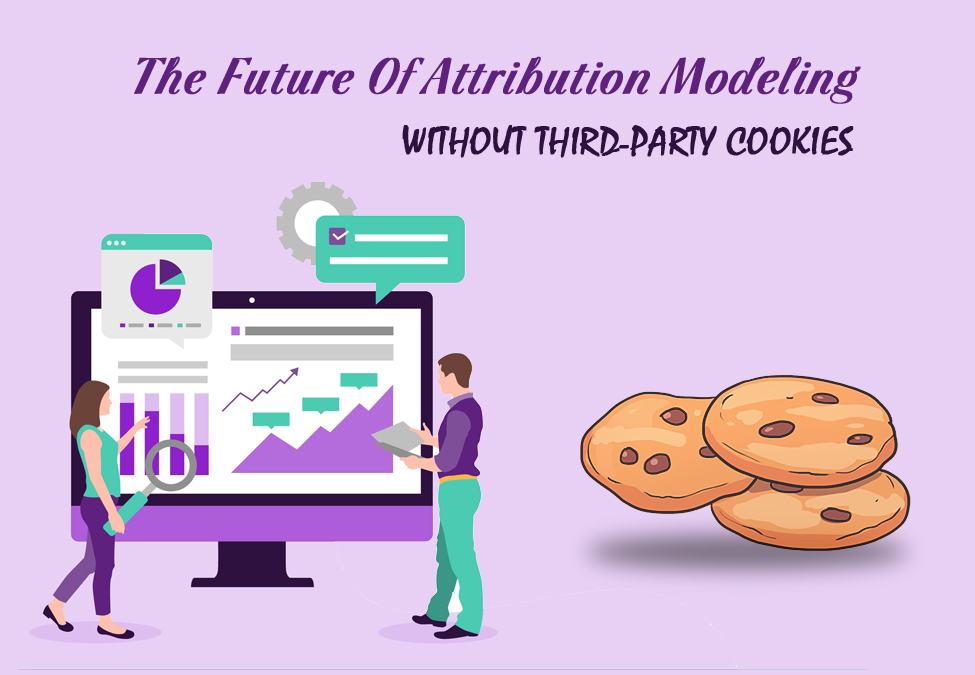Have so many headlines these days about user privacy and data protection, along with several laws, left you spinning your head? If so, we have summarized here some of the attribution modeling strategies, what they used to be, how they work, the new digital advertising attribution model, and many more below.
What is Attribution Modeling?
It is a process where marketing channels are credited for contributing to user conversion or action. This helps marketers understand how their ads perform and which channels and tactics are worth spending time and money on.
It helps to allocate resources more effectively, understand the impact of all marketing efforts, and understand ad performance overall.
Examples of Marketing Attribution Models
| Direct click | Last non-direct click |
| First interaction | Last interaction |
| Liner attribution model | Conversion window model |
Digital Advertising Attribution Software
| Google Analytics | AppsFlyer | HubSpot |
| Adjust | Adobe Experience Cloud | Dreamdata |
| Ruler Analytics |
What Are Third-Party Cookies?
Cookies are small text files used for online tracking and monitoring. A cookie is a file that a website sends to the browser. You can think of them as digital footprints that help track online activity and sites that you visit.
For instance, when you shop online and look at some water bottles, jeans, and stationery, cookies allow the retailer (e-commerce stores) to remember these items. So, next time you return, it will show you images of the same water bottles, jeans, and stationery that you viewed last time. Based on this, it suggests products.
Concern: Cookies enhance the overall web surfing experience. However, they also raise concerns over privacy. Some users prefer to block them to protect their data.
Some Data Protection Laws Across The Globe
1. General Data Protection Regulation (GDPR) By The EU, Effective Since May 25, 2018
- It governs how personal data can be processed and transferred.
- It is one of the strongest privacy & security laws.
- Personal data includes names, email IDs, locations, ethnicity, gender, biometric information, religious beliefs, web cookies, and political opinions.
- Companies dealing with personal data must comply with seven principles: lawfulness, fairness, transparency, purpose limitation, data minimization, accuracy, storage limitations, integrity, confidentiality, and accountability.
2. Enhanced Tracking Prevention (ETP) By Mozilla Firefox, 2019
- It blocks third-party cookies by default.
- It prevents tracking users’ browsing activity on one website from being visible to other sites.
- The latest 2.0 version blocks social media trackers, cross-site tracking cookies, fingerprinters, cryptominers, harmful scripts (like malware), etc.
- It clears all cookies and site data from tracking sides every 24 hours.
- ETP offers privacy in three settings – standard (balanced), strict, strict setting (includes cryptomining & fingerprinting).
3. iOS 14 (& Above) By Apple Inc., 2021
- It helps the user to limit the amount of personal data being collected.
- It enables users to opt out of the tracking process across several apps via App Tracking Transparency (ATT).
4. Privacy Sandbox By Google, Expected Full Third Party Phrase Out Q3 2024
- It is supposed to create web standards allowing websites to access user information without compromising privacy.
- It will reduce cross-site and cross-app tracking.
- Its major goal is to protect people’s online privacy, give publishers safe alternatives to existing tech, and support key marketing use cases for online businesses.
- It will limit data sharing with third parties.
- It will phrase out third parties’ cookies and limit covert tracking.
Attribution Modeling Future Without Third-Party Cookies
1. First Party Cookies
It is created and stored by the website you are using. It collects user data for analytics, remembers stored login information, and performs other functions for a smooth user experience. These are strictly essential cookies that do not require user consent.
- All browsers support first-party cookies by default.
- All cookie laws, such as GDPR, CCPA, etc., allow essential first-party cookies to be an exemption.
- It is directly stored by the website/ domain that you visit.
2. Cookie-Less Tracking
It refers to tracking and analyzing website user behavior without relying on traditional cookies. Let’s see some alternatives to cookies.
- Fingerprinting: This method identifies users based on device characters such as the type of browser, screen resolution, installed fonts, etc., instead of traditional cookies.
- Local Storage: The website bypasses cookies by storing data directly in the browser’s local storage.
- Contextual Target: advertisers focus on the context of the content being viewed instead of tracking individual users.
Advantages Of Cookie-Less Tracking
- It offers privacy and reduces tracking.
- Cookie-less tracking ensures compliance.
- It can be used across various devices without needing any cookies.
3. Server Based Tracking
It is a method of collecting and processing user data from web and mobile apps directly on the server rather than on the client’s device (browser or mobile app). Server-based tracking operates by communicating directly with a server while bypassing steps in between.
Advantages Of Server Based Tracking
- Here, data collection & processing is not done on the user’s device (i.e., client-side tracking).
- It reduces the risk of exposing sensitive information on the client side, hence giving more privacy & security.
- It complies with privacy regulations (like GDPR) as there is minimum data collection on the user’s device.
- It can track users across different devices without relying on cookies or local storage.
- It minimizes the discrepancy caused by ad blockers or browser limitations.
These may all sound very good and safe, but there are always two sides to the coin. Let’s now look at the other side of digital advertising attribution without third-party cookies.
Future Of Digital Marketing Attribution
On The Name Of Privacy – A Rise In Privacy Profiteering
Lately, analytics platforms are being dumped down in the name of privacy. As time passes, some tracking tools & capabilities have been lost because of new privacy updates. When Apple Inc. released iOS 14.5 (2021), it made it compulsory for apps to ask users if they want to be tracked.
And the answer won’t be surprising. Most users said no. It hurt Facebook ads, which now under-report custom conversions, return on ad spend, etc. And that’s not it. Now, Apple has a new mail privacy protection that lets users decide what data to share when using an email app. This will eventually ruin email marketing stats.
However, these don’t matter to Apple as they don’t hurt its business interests. This is a concerning development for small online businesses. They stand to lose their ability to advertise profitability and may even face closure. Here, large retailers like Amazon, etc., could dominate the landscape.
Most stats models now by Google (model conversions), Facebook (aggregated event measurement), etc., give optimal results only when there is a large volume of conversion rates. This is a significant disadvantage for small businesses. Large companies with hundreds of data won’t be affected by the negative impact as they have machine learning (ML), which they can use for advertising, but small companies do not have these privileges.
So, if you are wondering why large companies are getting so obsessed with privacy, the answer is privacy profiteering. For companies like Apple here, the commercial intent is clear: increase their market share by converting Android users to iPhone users. The same can be said for Google, no search engine can directly compete with it, but there have been some, like DuckDuckGo, etc., who are more privacy based, & compete with Google by giving better privacy options.
Both DuckDuckGo and Apple are playing the same game – a privacy-based platform. Since Steve Jobs, Apple has struggled with innovation. At the end of the day, companies like Apple are for-profit, and user privacy protection is merely a means to an objective – controlling market share.
Will Stringent Privacy Laws Help With User Privacy?
All three alternatives to third-party cookies that we mentioned above are the result of these rules. Any person can use a developer console or browser extension to check what and where a website is collecting and sending data. The more stringent the rules, the more complex third-party tools will become. It is just a never-ending cycle.
SMEs won’t be able to track cheaply using third-party cookies and will have to invest in more expensive tracking tools. The goods and services will get expensive as the end user will end up paying more. Large businesses can easily pay for expensive attribution modeling tools or create their own tracking tools. That’s why we offer complete service, from website development to managing your online marketing to lessen your hassle.
But small businesses won’t be able to do so. They either pay a hefty amount to know if their ads and posts are working by paying a large sum of their profit, overcharge customers, or shut down completely.
Embrace The Future Of Marketing With Egnoto
Users and people should weigh all the pros and cons before making any decision. It is easy to go with the flow. If one way closes, the other opens up. That’s how everything in this world goes by. And it is equally true for attribution modeling strategies. Contact Egnoto to learn more about digital marketing strategies and to make your business grow.










